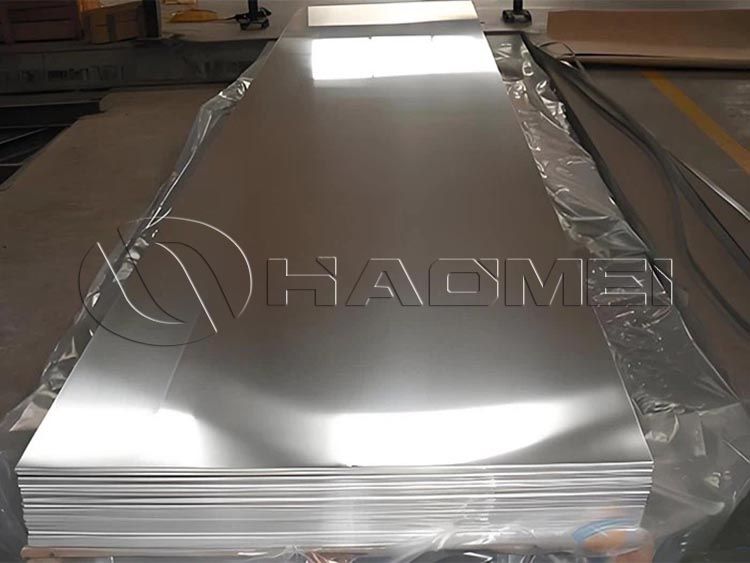Get in touch
-
Email:
sale@alumhm.com -
Tel/whatsapp:
+86-15978414719 -
Fax:
+86-0371-65621393 -
Address:
No.14 Waihuan Road, CBD, Zhengzhou, China -
Website:
https://www.aluminium-tanker-plate.com
Different Tempers of 5083 Aluminum Plate
In the transportation and chemical storage sectors, tank trucks, as key vehicles for transporting liquid and gaseous media, place stringent demands on sheet material for corrosion resistance, strength, and formability. 5083 aluminum alloy, with its high magnesium content (4.0%-4.9%), offers excellent seawater corrosion resistance, moderate strength, and good weldability, making it the preferred material for key components such as tank bodies, heads, and piping.

5083-O aluminum
Core Properties
Optimal Plasticity: With an elongation of 20%-25%, it offers the highest plasticity of all 5083 aluminum sheet grades, easily surviving complex forming processes such as deep drawing and spinning.
Lowest Strength: With a tensile strength of approximately 270 MPa and a yield strength of approximately 110 MPa, it is soft and easy to process, making it suitable for parts requiring multiple deformations.
Excellent Stability: Full annealing eliminates internal stresses in processing, making formed parts less susceptible to cracking and deformation, and making dimensional accuracy easier to control.
Applicable Tank Truck Components
Tanker Truck Heads: These heads need to be spun or stamped into hemispherical or elliptical shapes. The high plasticity of the O-state prevents wrinkles or cracks during the forming process.
Tanker Body Special-Shaped Joints: For example, the feed inlet on the top of the tanker and the drain outlet on the side. These complex shapes require multiple bending or stamping operations. The O-state reduces the processing difficulty.
Small Connectors: For example, brackets and fixing clips inside the tanker, these components need to be lightweight and easy to process. The O-state can meet simple bending requirements.
5083 h111
Balanced strength and ductility: Al 5083 h111’s tensile strength approximately 300 MPa, yield strength approximately 170 MPa, and elongation approximately 15%, 10%-15% higher than the 0-state strength, while maintaining good formability.
No heat treatment required: Hardening is achieved through light cold working (e.g., cold rolling with a 5%-10% reduction), eliminating the need for subsequent annealing or aging, resulting in high production efficiency.
Stable welding performance: The weld strength after welding is highly compatible with the base material, and the heat-affected zone is less susceptible to softening, making it suitable for continuous welding of long welds.
Applicable Tank Truck Components
Tank Truck Tank Bodies: Tanks are mostly cylindrical and require aluminum sheet rolling followed by straight seam welding. H111 strength ensures the tank's pressure-bearing capacity (e.g., atmospheric and low-pressure chemical tankers) while also preventing cracking during the rolling process.
Tank Truck Side Guards and Fenders: These components require simple bending and impact resistance. H111 hardness reduces deformation caused by stone impact during transportation.
Pipes and Flanges: Tank truck pipelines (e.g., oil pipelines on oil and gas tankers) require welding. H111 strength eliminates the need for additional heat treatment after welding, streamlining the production process.
5083 h321
Core Performance
High Strength Advantage: Tensile strength reaches 350MPa, yield strength is approximately 280MPa, making it the strongest of the three commonly used temper types, capable of withstanding higher pressures and loads.
Strong Stress Corrosion Resistance: Through "cold working + stabilization treatment" (e.g., holding at 100-120°C for 1 hour), residual stress is eliminated, reducing the risk of stress corrosion cracking in corrosive environments (such as salt water and chemical solutions).
Excellent Dimensional Stability: Stabilization treatment reduces aging deformation during subsequent use, making it suitable for components subjected to long-term stress.
Applicable Tank Truck Components
High-pressure tank truck bodies, such as liquefied natural gas (LNG) tank trucks and high-pressure chemical raw material tank trucks, must withstand pressures of 0.8-2.5 MPa. The high strength of al 5083 h321 ensures safety.
Tank truck support beams and load-bearing frames: These components must bear the weight of the tank and the medium. The high yield strength of H321 temper prevents plastic deformation during long-term use.
Emergency shut-off valve housings: As safety-critical components in tank trucks, they must be impact-resistant and corrosion-resistant. H321 temper meets stringent safety standards.
